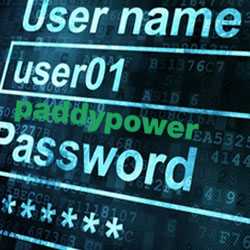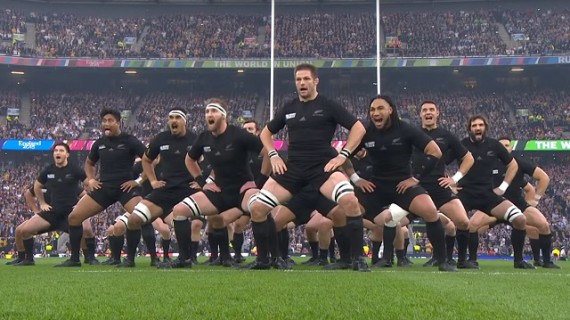New AI Earns Nearly $800,000 Playing Against Poker Pros

Poker 2.0 (Photo: Christine Daniloff/MIT)
The story of John Henry against the steam-driven hammer was an old insight into man’s eventual loss to technology. Theories on the dangers of AI have been raging for years, and we’re just now beginning to see the power that a self-teaching computer can possess.
This was on full display a few weeks ago, when an AI dominated a tournament playing against poker pros. The artificial intelligence’s gambling results were staggering, winning nearly $800,000 in just the first week.
Called Liberatus, this AI was created by computer science professor Tuomas Sandholm and his PhD student Noam Brown. To date, this has been the first AI to find consistent success playing against poker pros in a major tournament.
The Verge wonders if the AI was used for different reasons
A poker playing AI making headlines for it’s incredible poker gambling results is not exactly scary, but what if this intelligence was used for more dubious purposes, such as a cyber attack? Many in the tech industry have warned about the ramifications of an intelligent machine, sometimes known as a singularity.
There are so many potential issues that could arise, it’s scary to even think about. As Sam Harris once said, an AI programmed to delete spam email may decide the best course of action would be to eliminate all humans using email.
Nonetheless, this AI winning thousands playing poker is impressive, and on one hand sheds light on a way that an intelligence like this could be used for good. Looks like we’ll have to wait and see what’s ahead for the human race.

Poker 2.0 (Photo: Christine Daniloff/MIT)
The story of John Henry against the steam-driven hammer was an old insight into man’s eventual loss to technology. Theories on the dangers of AI have been raging for years, and we’re just now beginning to see the power that a self-teaching computer can possess.
This was on full display a few weeks ago, when an AI dominated a tournament playing against poker pros. The artificial intelligence’s gambling results were staggering, winning nearly $800,000 in just the first week.
Called Liberatus, this AI was created by computer science professor Tuomas Sandholm and his PhD student Noam Brown. To date, this has been the first AI to find consistent success playing against poker pros in a major tournament.
The Verge wonders if the AI was used for different reasons
A poker playing AI making headlines for it’s incredible poker gambling results is not exactly scary, but what if this intelligence was used for more dubious purposes, such as a cyber attack? Many in the tech industry have warned about the ramifications of an intelligent machine, sometimes known as a singularity.
There are so many potential issues that could arise, it’s scary to even think about. As Sam Harris once said, an AI programmed to delete spam email may decide the best course of action would be to eliminate all humans using email.
Nonetheless, this AI winning thousands playing poker is impressive, and on one hand sheds light on a way that an intelligence like this could be used for good. Looks like we’ll have to wait and see what’s ahead for the human race.
BBC and MSN All Scored Great Gambling Results for Punter
In the Spanish La Liga, BBC and MSN all scored last weekend. It was the first time ever that all players from the Real Madrid and Barcelona forward-lines have found the net.
BBC and MSN all scored 89 goals so far in the league season. Real Madrid’s BBC has a tally of 45, while Barca’s forwards racked up 44 goals. However, that was the first time that these six players have scored on the same league matchday. And this was massive for one online betting player.
101greatgoals.com: BBC and MSN all scored on same La Liga matchday
Real Madrid have defeated Sporting Gijon 5–1 in the second league game under manager Zinedine Zidane, latest gambling news report. Gareth Bale opened scoring in the 7th minute, while Cristiano Ronaldo and Karim Benzema both have scored braces.
Bleacherriport: Punter Wins Bet as MSN and BBC All Scored on the Same Day for the 1st Time
Barcelona were also one-goal – and one man – ahead in the 7th minute through Lionel Messi’s penalty. This was supported by a goal from Neymar, a hat-trick from Luis Suarez and one more from Ivan Rakitic, making it 6–0.
This also meant that BBC and MSN all scored (Bale, Benzema, Crisitiano and Messi, Suarez, Neymar), for the first time ever in the Spanish La Liga. Experts of gambling facts might know that it almost happened in the 13th round of the 2015/16 La Liga season that BBC and MSN all scored. However, Karim Benzema wasn’t able to find the net back then.
This gambling result meant that a lucky online betting player, who had a bet slip with BBC to score odds of 4.50 (7/2) and MSN to score odds of 6.50 (11/2). Since BBC and MSN all scored, he had an excellent GBP 146.25 return on a GBP 5 bet. It seems that these exceptional football players not only provide entertainment, but it’s also beneficial to put some money on them from time to time.

In the Spanish La Liga, BBC and MSN all scored last weekend. It was the first time ever that all players from the Real Madrid and Barcelona forward-lines have found the net.
BBC and MSN all scored 89 goals so far in the league season. Real Madrid’s BBC has a tally of 45, while Barca’s forwards racked up 44 goals. However, that was the first time that these six players have scored on the same league matchday. And this was massive for one online betting player.
101greatgoals.com: BBC and MSN all scored on same La Liga matchday
Real Madrid have defeated Sporting Gijon 5–1 in the second league game under manager Zinedine Zidane, latest gambling news report. Gareth Bale opened scoring in the 7th minute, while Cristiano Ronaldo and Karim Benzema both have scored braces.
Bleacherriport: Punter Wins Bet as MSN and BBC All Scored on the Same Day for the 1st Time
Barcelona were also one-goal – and one man – ahead in the 7th minute through Lionel Messi’s penalty. This was supported by a goal from Neymar, a hat-trick from Luis Suarez and one more from Ivan Rakitic, making it 6–0.
This also meant that BBC and MSN all scored (Bale, Benzema, Crisitiano and Messi, Suarez, Neymar), for the first time ever in the Spanish La Liga. Experts of gambling facts might know that it almost happened in the 13th round of the 2015/16 La Liga season that BBC and MSN all scored. However, Karim Benzema wasn’t able to find the net back then.
This gambling result meant that a lucky online betting player, who had a bet slip with BBC to score odds of 4.50 (7/2) and MSN to score odds of 6.50 (11/2). Since BBC and MSN all scored, he had an excellent GBP 146.25 return on a GBP 5 bet. It seems that these exceptional football players not only provide entertainment, but it’s also beneficial to put some money on them from time to time.

New Zealand Won the Rugby World Cup After Biggest Bet in History
A punter from the northern island of the country placed a NZD 400,000 wager on the All Blacks, the biggest bet in history.
Since the New Zealand national rugby team was strong favourites against Australia, one had to wager quite a bet to win some serious cash. This is exactly what a player did from New Zealand, placing an extraordinary NZD 400,000 on the All Blacks, the biggest bet in history at land based and online sportsbooks in New Zealand.
The All Blacks duly won the 2015 Rugby World Cup final against their firm rivals. The 1.35 betting odds meant that the final gambling winnings were NZD 540,000 – awesome gambling news for the mysterious bettor. The previous record bet at New Zealand sportsbooks was a NZD 220,000 wager on Brazil beating China in the 2002 FIFA World Cup.
New Zealand v Australia – Match Highlights and Tries – RWC Final 2015
New Zealand became the first national team that was able to retain its rugby world championship title, and this was the first occasion that the All Blacks won the competition outside New Zealand.

A punter from the northern island of the country placed a NZD 400,000 wager on the All Blacks, the biggest bet in history.
Since the New Zealand national rugby team was strong favourites against Australia, one had to wager quite a bet to win some serious cash. This is exactly what a player did from New Zealand, placing an extraordinary NZD 400,000 on the All Blacks, the biggest bet in history at land based and online sportsbooks in New Zealand.
The All Blacks duly won the 2015 Rugby World Cup final against their firm rivals. The 1.35 betting odds meant that the final gambling winnings were NZD 540,000 – awesome gambling news for the mysterious bettor. The previous record bet at New Zealand sportsbooks was a NZD 220,000 wager on Brazil beating China in the 2002 FIFA World Cup.
New Zealand v Australia – Match Highlights and Tries – RWC Final 2015
New Zealand became the first national team that was able to retain its rugby world championship title, and this was the first occasion that the All Blacks won the competition outside New Zealand.

Paddy Power Data Breach Comes to Light after Four Years

The highlight of this week’s online gambling news is the data breach that happened in 2010 and affected 649,000 Paddy Power customers. Their personal details were stolen by a Canadian who hacked into the betting company’s database. Now, four years later, Paddy Power is sending out emails to users who have been affected.
The hacker accessed personal information such as names, addresses, phone numbers, dates of birth, and even all the security questions used to verify accounts, along with the answers chosen by users. Luckily, he did not manage to get his hands on any financial information.
“We sincerely regret that this breach occurred and we apologize to people who have been inconvenienced as a result,” online division chief Peter O’Donovan said.
“We take our responsibilities regarding customer data extremely seriously and have conducted an extensive investigation into the breach and the recovered data. That investigation shows that there is no evidence that any customer accounts have been adversely impacted by this breach.”
Irish Mirror: Paddy Power say 650,000 customers affected by 2010 cyber attack
Paddy Power started to contact customers, after it was discovered that their personal information was leaked in a 2010 cyber attack. Almost 650,000 punters were affected by the data theft, and the Irish betting company said it was “pro-actively” getting in touch with those whose names, addresses, and phone numbers may have fallen into the wrong hands.
When checking their emails or the latest gambling results, some customers also came across a letter signed by Paddy Power’s managing director of online business, Peter O’Donovan, delivering the bad news that their personal details were stolen. The attack allegedly originated in Ontario, Canada.
The company said no financial information was taken from the 120,855 Irish customers, 461,154 UK users, and 67,052 international punters have been affected. It has been reported that Paddy Power became aware of the fraud in May, when it immediately launched an investigation, but it’s unclear why it took them so long to go public with it.
“We are communicating with all of the people whose details have been compromised to tell them what has happened,” O’Donovan added.
Comox Valley Echo: Irish betting company Paddy Power apologizes for 2010 data breach involving 649,055 customers
The Dublin-based online and mobile betting operator said it had known since 2010 that someone attempted to hack its customers’ online accounts. Paddy Power monitored the system for signs of fraud or theft, but said it had found no evidence of it actually happening
It was only in May that the company received a tipoff about a man in Toronto who had an archive of Paddy Power’s customers’ names, addresses, phone numbers, emails, birth dates, usernames, and security questions. All this information would come in handy to someone who tries to impersonate customers, to crack into their personal accounts on other websites.
Two Canadian court orders were secured in July, ordering the man to surrender his database. The police also obtained permits to look into his IT equipment and financial records. The man was questioned by officers, but is yet to be charged with any crime.
Paddy Power has started to send emails to the 649,055 customers affected. That number represented almost 30% of its online gamblers in 2010. Users were advised to change their security questions on all web accounts.
According to Maksym Schipka, an information security specialist working for British cyber-security firm Clearswift, the betting operator’s failure to identify the details of the data theft over the past four years is “a huge failure on Paddy Power’s behalf to maintain control and protection of its users’ critical information.”
Gloal Post: Ireland expresses concern over data breach in bookmaker Paddy Power
Soon after it came to light that a Canadian hacker had stolen personal information from Paddy Power’s data base, the Irish government publicly expressed concern over the data breach.
Dara Murphy, minister of state at the departments of the prime minister and foreign affairs with special responsibility for European affairs and data protection, told reporters: “I am very disappointed that it has taken until now for Paddy Power to inform its customers”
The breach occurred in October 2010, but Paddy Power did not inform the office of the Data Protection Commissioner until May 12, 2014. While gambling laws do not make it mandatory for operators to report such breaches, this is the recommended best practice.
The Irish betting operator waited almost four years to talk about what happened, and only went public after an investigation revealed details about the data theft.
“Paddy Power put in place increased security measures after the breach in 2010 and I have been in touch with the Office of the Data Protection Commissioner, which met with Paddy Power representatives this week,” Murphy added in a statement.
“My office and that of the Data Protection Commissioner will be working closely in relation to this matter. It is best practice to inform the commissioner as soon as these breaches occur, and although these were not breaches of password or financial information, the data security breach code of practice should be followed at all times in order to safeguard personal information and assure customers that their data is secure.”

The highlight of this week’s online gambling news is the data breach that happened in 2010 and affected 649,000 Paddy Power customers. Their personal details were stolen by a Canadian who hacked into the betting company’s database. Now, four years later, Paddy Power is sending out emails to users who have been affected.
The hacker accessed personal information such as names, addresses, phone numbers, dates of birth, and even all the security questions used to verify accounts, along with the answers chosen by users. Luckily, he did not manage to get his hands on any financial information.
“We sincerely regret that this breach occurred and we apologize to people who have been inconvenienced as a result,” online division chief Peter O’Donovan said.
“We take our responsibilities regarding customer data extremely seriously and have conducted an extensive investigation into the breach and the recovered data. That investigation shows that there is no evidence that any customer accounts have been adversely impacted by this breach.”
Irish Mirror: Paddy Power say 650,000 customers affected by 2010 cyber attack
Paddy Power started to contact customers, after it was discovered that their personal information was leaked in a 2010 cyber attack. Almost 650,000 punters were affected by the data theft, and the Irish betting company said it was “pro-actively” getting in touch with those whose names, addresses, and phone numbers may have fallen into the wrong hands.
When checking their emails or the latest gambling results, some customers also came across a letter signed by Paddy Power’s managing director of online business, Peter O’Donovan, delivering the bad news that their personal details were stolen. The attack allegedly originated in Ontario, Canada.
The company said no financial information was taken from the 120,855 Irish customers, 461,154 UK users, and 67,052 international punters have been affected. It has been reported that Paddy Power became aware of the fraud in May, when it immediately launched an investigation, but it’s unclear why it took them so long to go public with it.
“We are communicating with all of the people whose details have been compromised to tell them what has happened,” O’Donovan added.
Comox Valley Echo: Irish betting company Paddy Power apologizes for 2010 data breach involving 649,055 customers
The Dublin-based online and mobile betting operator said it had known since 2010 that someone attempted to hack its customers’ online accounts. Paddy Power monitored the system for signs of fraud or theft, but said it had found no evidence of it actually happening
It was only in May that the company received a tipoff about a man in Toronto who had an archive of Paddy Power’s customers’ names, addresses, phone numbers, emails, birth dates, usernames, and security questions. All this information would come in handy to someone who tries to impersonate customers, to crack into their personal accounts on other websites.
Two Canadian court orders were secured in July, ordering the man to surrender his database. The police also obtained permits to look into his IT equipment and financial records. The man was questioned by officers, but is yet to be charged with any crime.
Paddy Power has started to send emails to the 649,055 customers affected. That number represented almost 30% of its online gamblers in 2010. Users were advised to change their security questions on all web accounts.
According to Maksym Schipka, an information security specialist working for British cyber-security firm Clearswift, the betting operator’s failure to identify the details of the data theft over the past four years is “a huge failure on Paddy Power’s behalf to maintain control and protection of its users’ critical information.”
Gloal Post: Ireland expresses concern over data breach in bookmaker Paddy Power
Soon after it came to light that a Canadian hacker had stolen personal information from Paddy Power’s data base, the Irish government publicly expressed concern over the data breach.
Dara Murphy, minister of state at the departments of the prime minister and foreign affairs with special responsibility for European affairs and data protection, told reporters: “I am very disappointed that it has taken until now for Paddy Power to inform its customers”
The breach occurred in October 2010, but Paddy Power did not inform the office of the Data Protection Commissioner until May 12, 2014. While gambling laws do not make it mandatory for operators to report such breaches, this is the recommended best practice.
The Irish betting operator waited almost four years to talk about what happened, and only went public after an investigation revealed details about the data theft.
“Paddy Power put in place increased security measures after the breach in 2010 and I have been in touch with the Office of the Data Protection Commissioner, which met with Paddy Power representatives this week,” Murphy added in a statement.
“My office and that of the Data Protection Commissioner will be working closely in relation to this matter. It is best practice to inform the commissioner as soon as these breaches occur, and although these were not breaches of password or financial information, the data security breach code of practice should be followed at all times in order to safeguard personal information and assure customers that their data is secure.”
Mega Millions Winners of $190 Million Lottery is a Retired Couple

Mega millions winners
Mega millions winners and the lucky owners of one of the two winning tickets sold in the 360 million dollar (£246m), 42 state Mega Millions lotto stepped forward on January 8, to claim half of the cash prize. The $360 million prize, the second largest in US history, will be evenly split between Jim & Carolyn McCullar and the yet unknown individual who can produce the second winning ticket.
Jim McCullar, 68, chose the winning numbers (4, 8, 15, 25, 47, and Mega Ball 42) at a Safeway Supermarket in his hometown of Ephrata, a tiny enclave of 7500 residents in the eastern part of Washington State.
Curiously, the yet unclaimed second winning ticket was sold just 120 miles away, at a rural potato farming community of Post Falls, Idaho. In a second strange twist, the first three winning numbers (4, 8, 15 and Mega Ball 42) were a major part of the plot of the mega millions winners number one rated American TV show: Lost.
Mega millions winners: over 23 grandchildren
Jim McCullar arrived with his wife of 42 years and just eight dollars in his pocket to pick up the oversized 190 million dollar check. The retired couple has six children, 23 grandchildren and five great-grandchildren.
The lucky mega millions winners have 2 months to decide whether to accept a lump sum of $90 million (after the 25% federal tax) or 26 installments of $5.5 million each year.
Idaho has a state tax unlike Washington; so the lump sum will be just 83 million dollars for the second, yet unknown winner. The mysterious second winner has just 190 days to produce the mega millions winners ticket and claim the prize or the ticket will become void.

Mega millions winners
Mega millions winners and the lucky owners of one of the two winning tickets sold in the 360 million dollar (£246m), 42 state Mega Millions lotto stepped forward on January 8, to claim half of the cash prize. The $360 million prize, the second largest in US history, will be evenly split between Jim & Carolyn McCullar and the yet unknown individual who can produce the second winning ticket.
Jim McCullar, 68, chose the winning numbers (4, 8, 15, 25, 47, and Mega Ball 42) at a Safeway Supermarket in his hometown of Ephrata, a tiny enclave of 7500 residents in the eastern part of Washington State.
Curiously, the yet unclaimed second winning ticket was sold just 120 miles away, at a rural potato farming community of Post Falls, Idaho. In a second strange twist, the first three winning numbers (4, 8, 15 and Mega Ball 42) were a major part of the plot of the mega millions winners number one rated American TV show: Lost.
Mega millions winners: over 23 grandchildren
Jim McCullar arrived with his wife of 42 years and just eight dollars in his pocket to pick up the oversized 190 million dollar check. The retired couple has six children, 23 grandchildren and five great-grandchildren.
The lucky mega millions winners have 2 months to decide whether to accept a lump sum of $90 million (after the 25% federal tax) or 26 installments of $5.5 million each year.
Idaho has a state tax unlike Washington; so the lump sum will be just 83 million dollars for the second, yet unknown winner. The mysterious second winner has just 190 days to produce the mega millions winners ticket and claim the prize or the ticket will become void.












